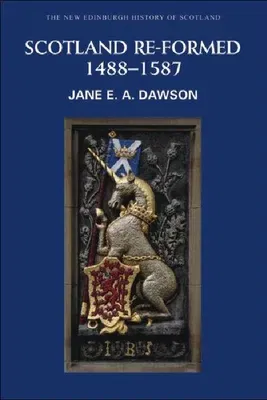From the death of James III to the execution of Mary, Queen of Scots,
Jane Dawson tells story of Scotland from the perspective of its regions
and of individual Scots, as well as incorporating the view from the
royal court. Scotland Re-formed shows how the country was re-formed as
the relationship between church and crown changed, with these two
institutions converging, merging and diverging, thereby permanently
altering the nature of Scottish governance. Society was also
transformed, especially by the feuars, new landholders who became the
backbone of rural Scotland. The Reformation Crisis of 1559-60 brought
the establishment of a Protestant Kirk, an institution influencing the
lives of Scots for many centuries, and a diplomatic revolution that
discarded the 'auld alliance' and locked Scotland's future into the
British Isles.Although the disappearance of the pre-Reformation church
left a patronage deficit with disastrous effects for Scottish music and
art, new forms of cultural expression arose that reflected Protestant
sensibilities or were transposed to secular settings. Alongside the
dramatic events and slow transformations of cultural, social, economic,
political and religious life, in 1587 much remained as it had been in
1488, with Scots deeply rooted in their country through their abiding
sense of people and place. Key Features: - Distinctive regional approach
brings a fresh perspective to the century's political and religious
events- Compelling new interpretation based upon the complex
inter-relationship of crown and church, helps students make sense of the
upheavals brought to Scotland by the Renaissance and Reformation-
Careful integration of visual, artistic and material culture enlivens
and enriches students' understanding of Scottish life

